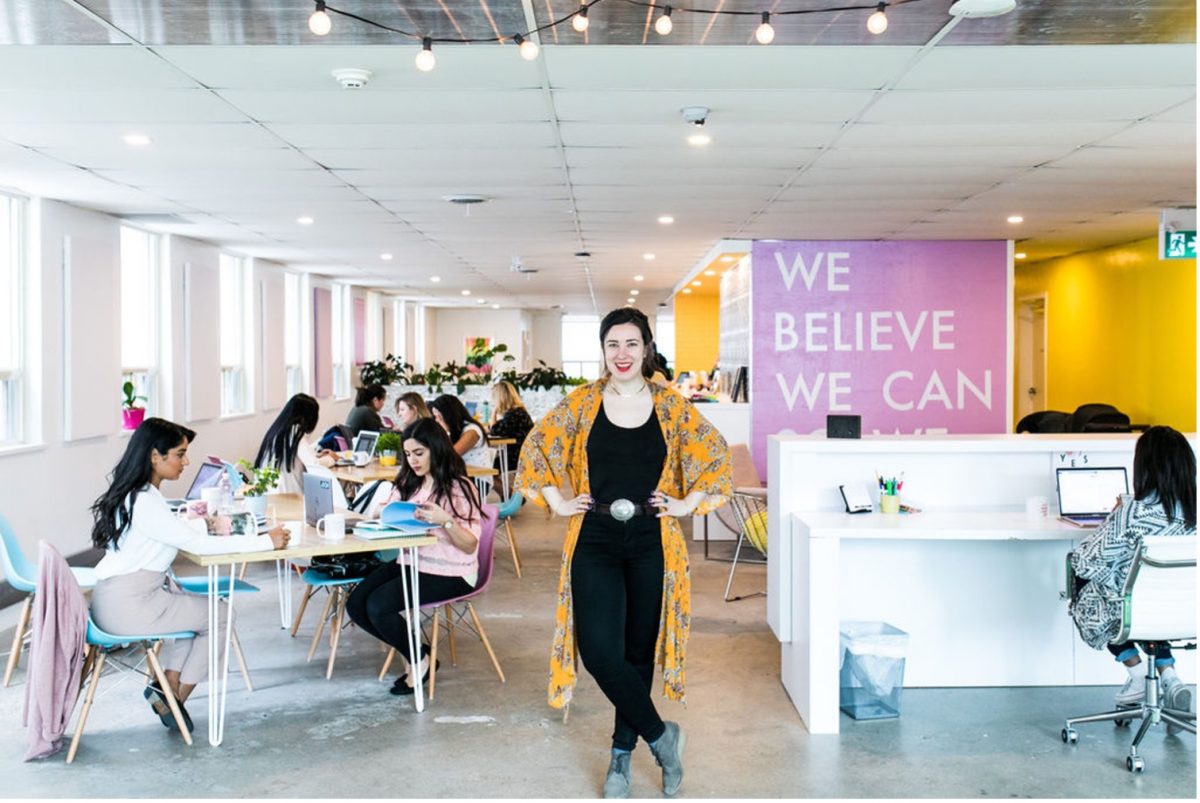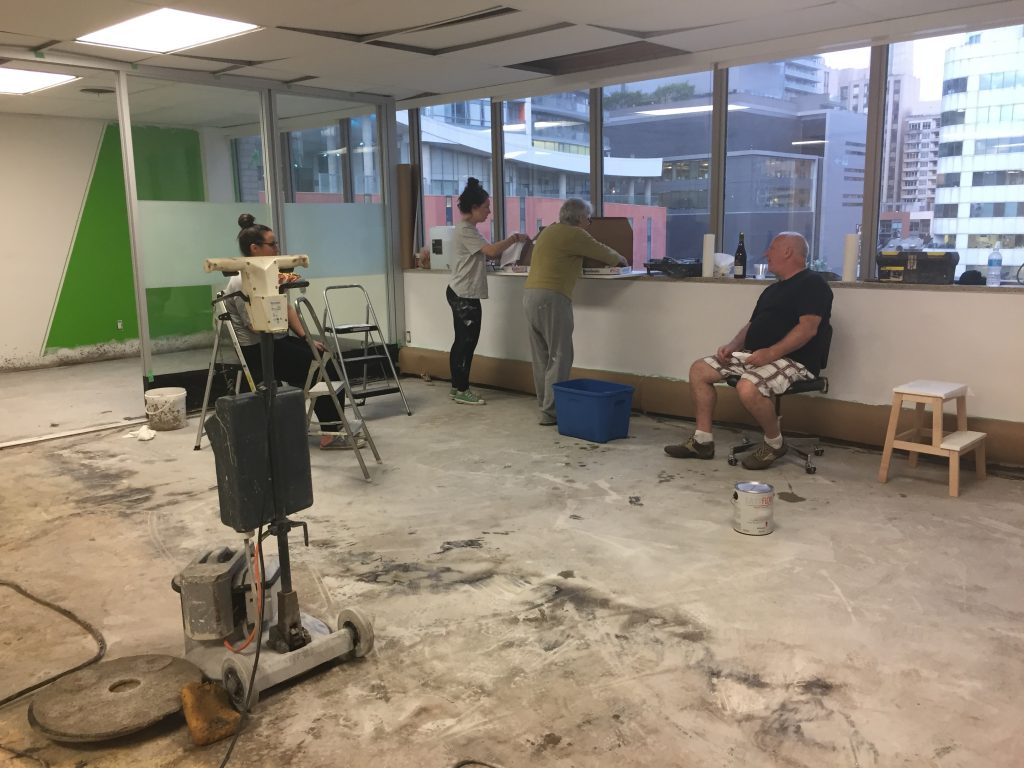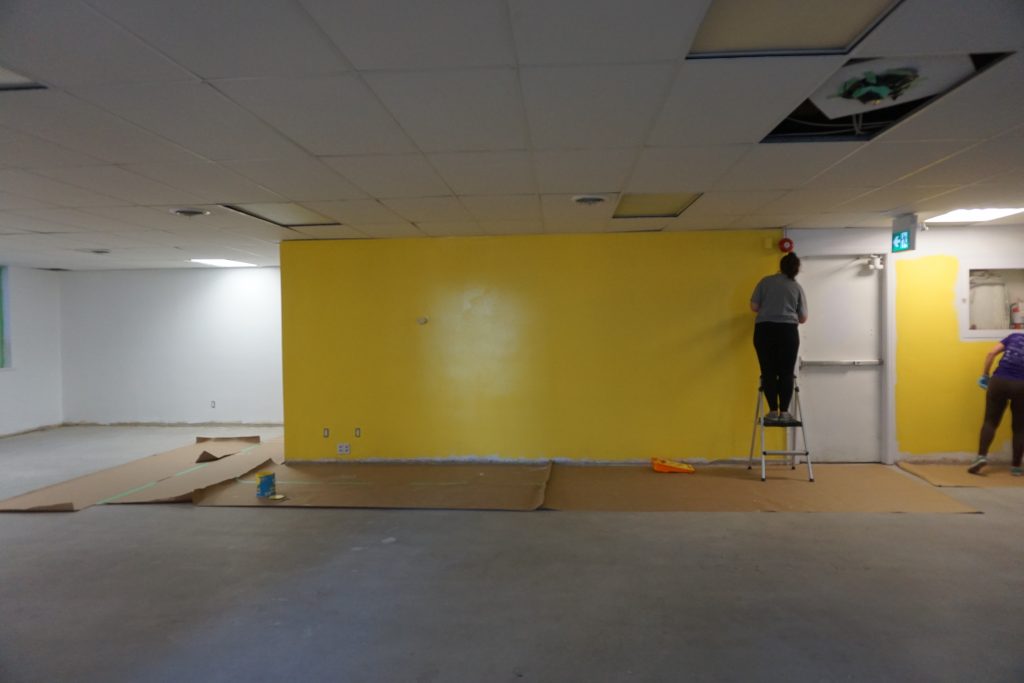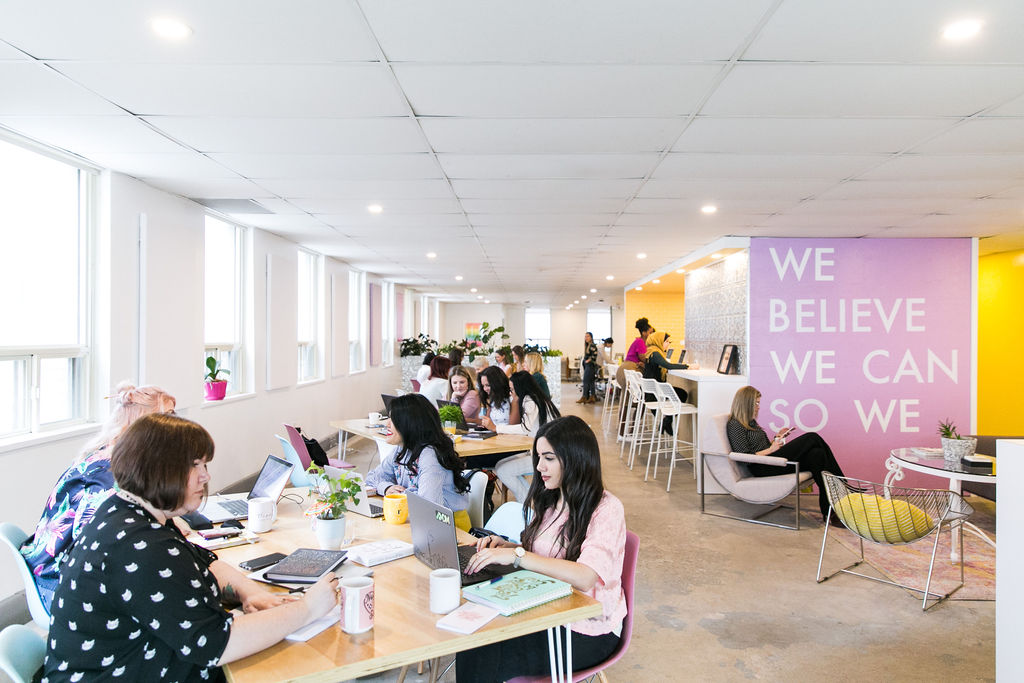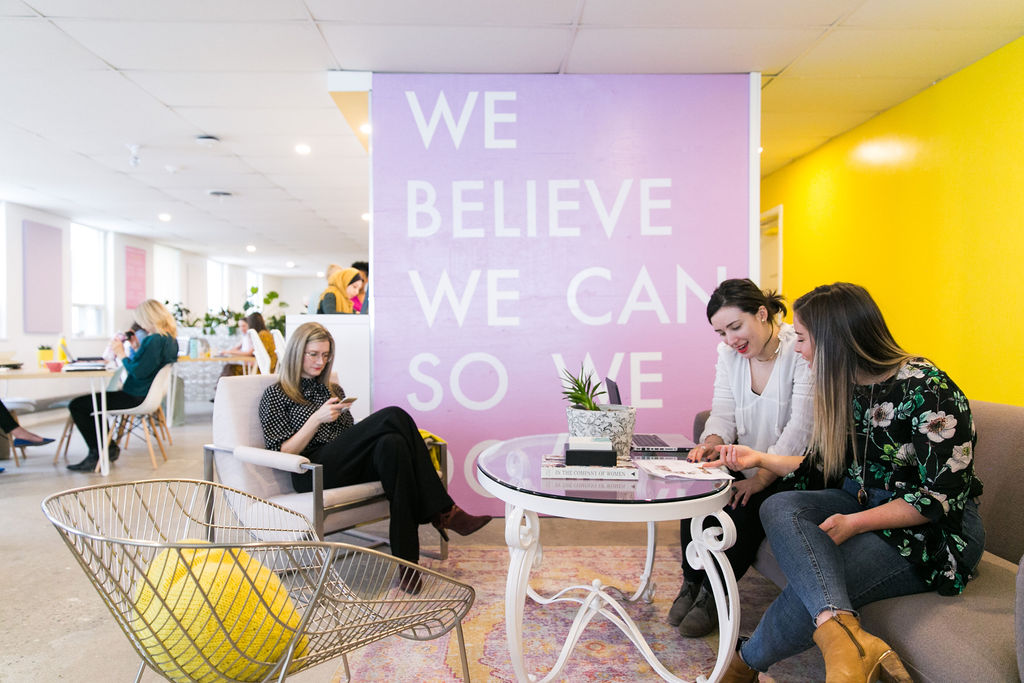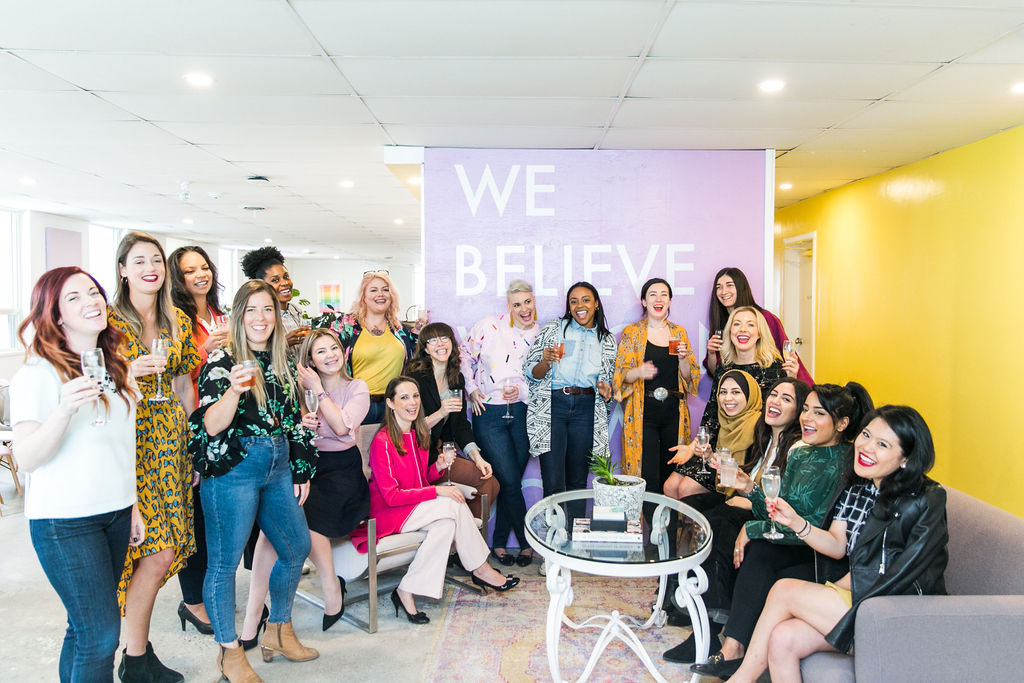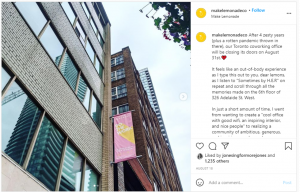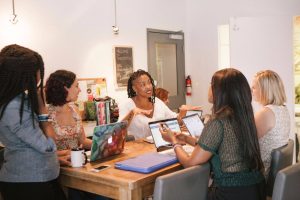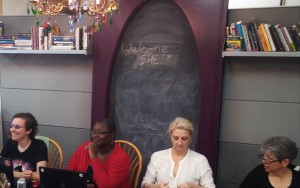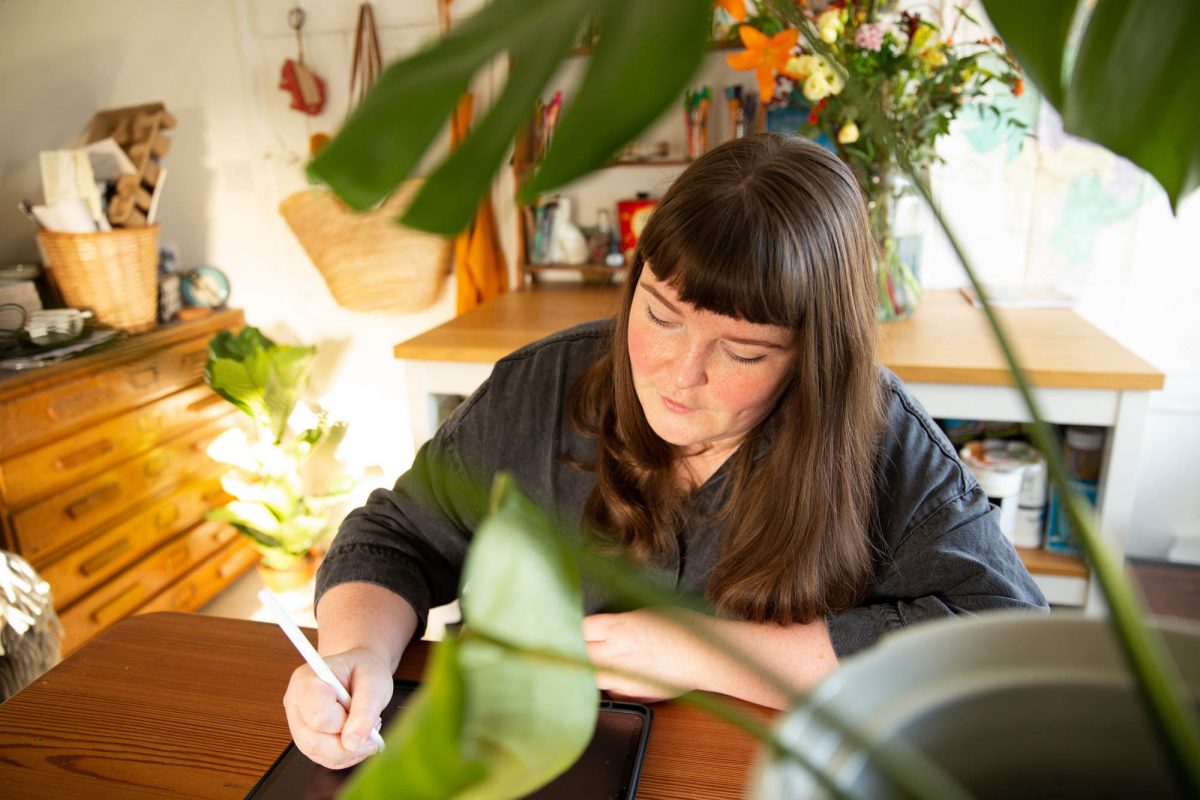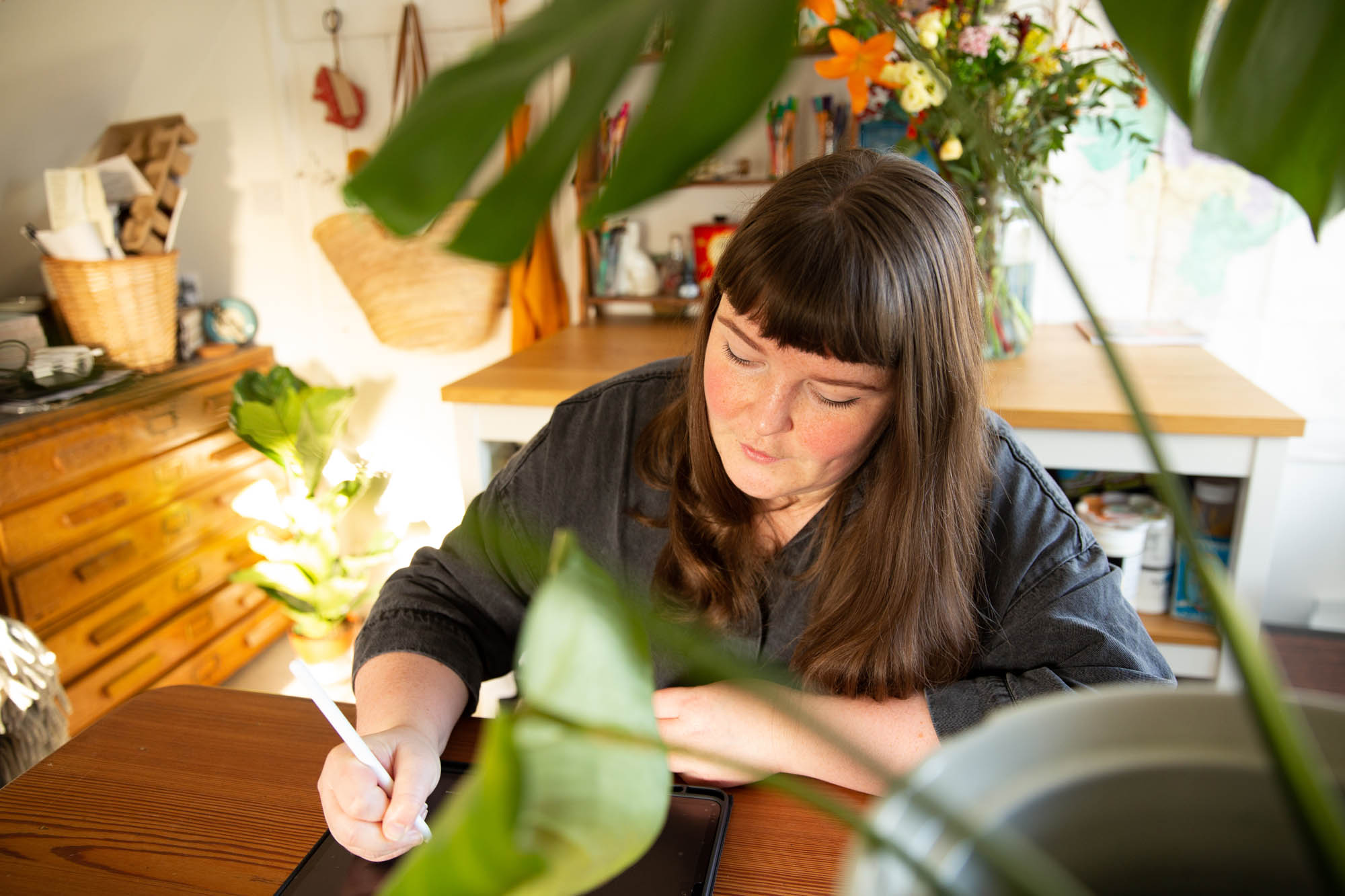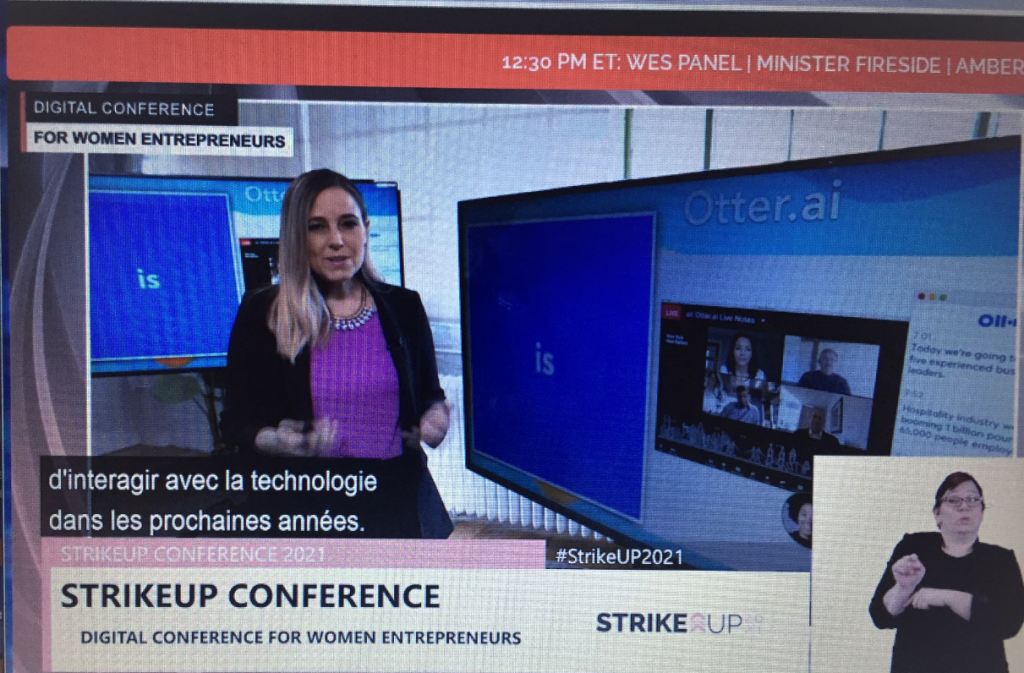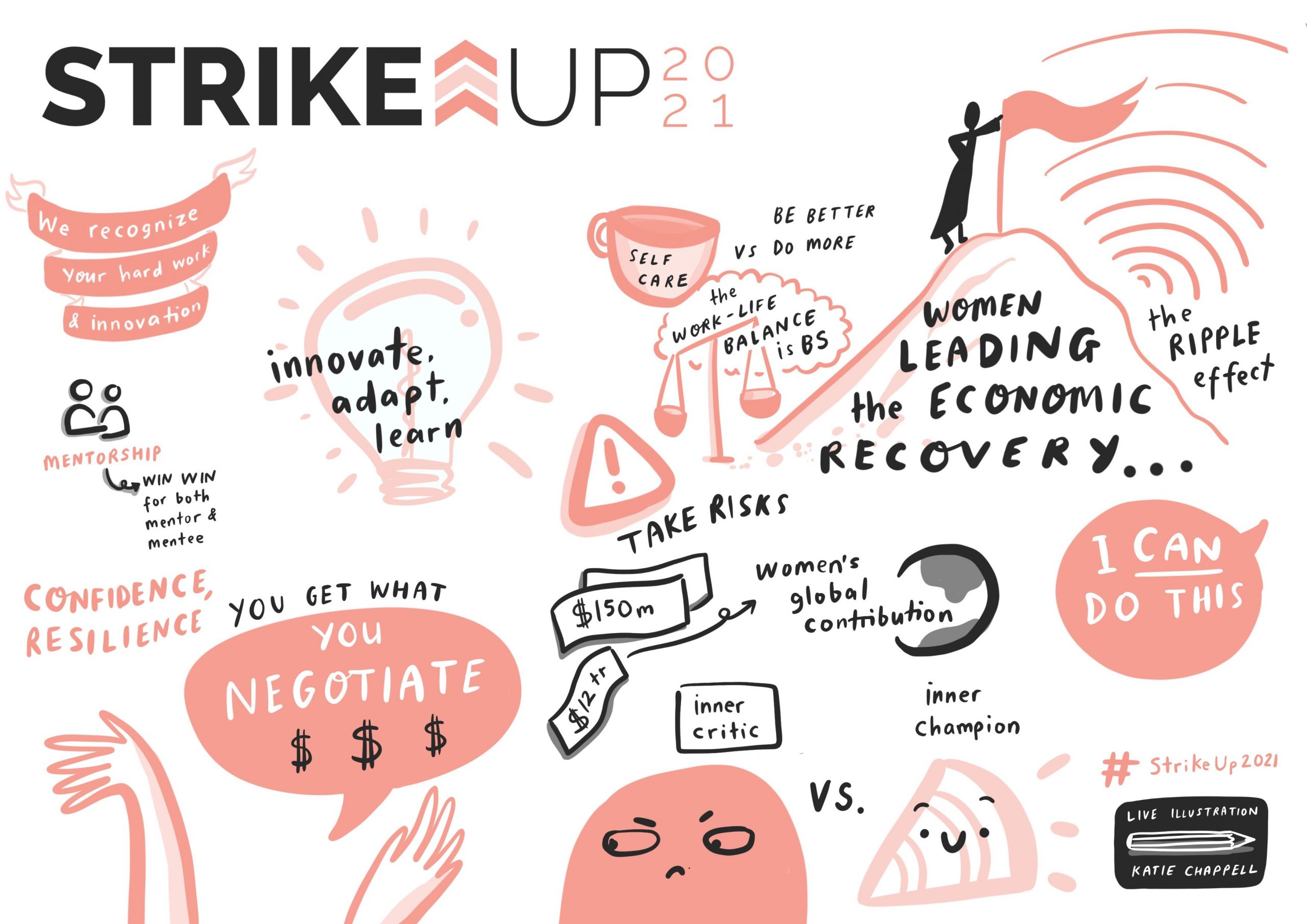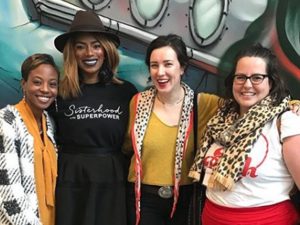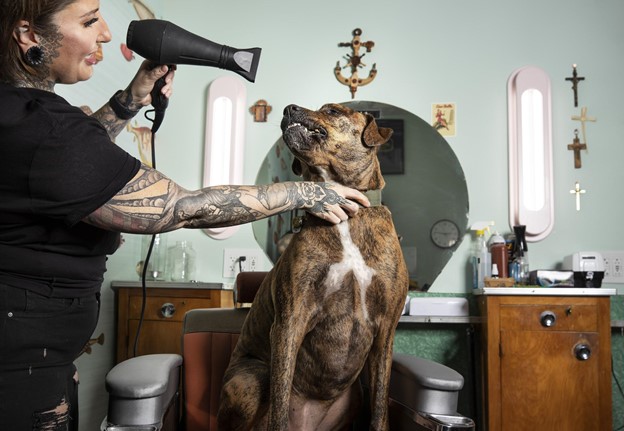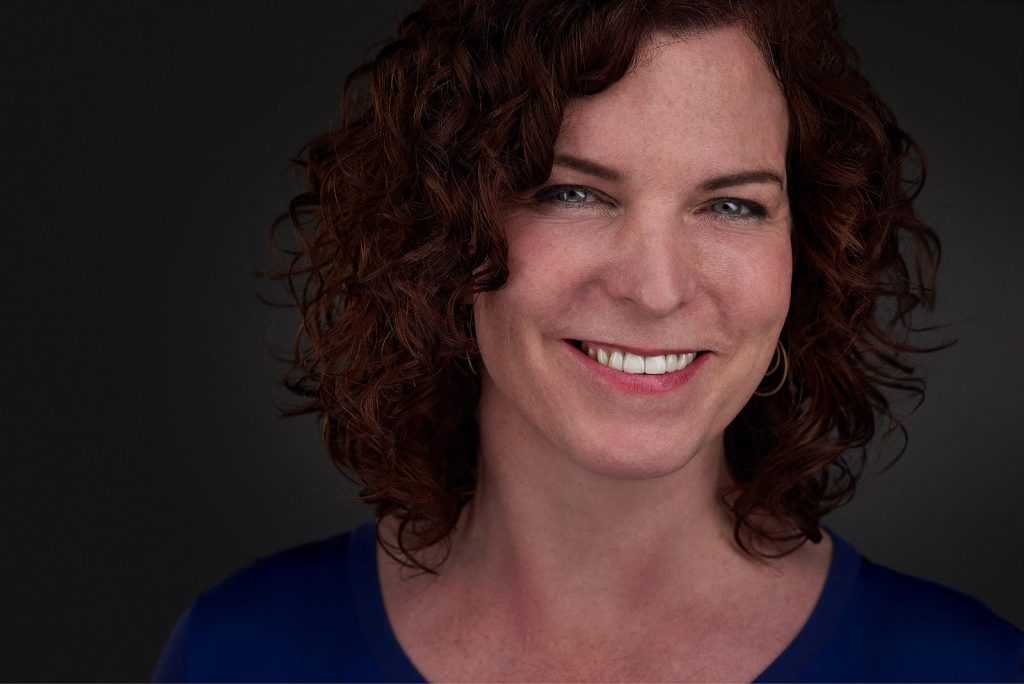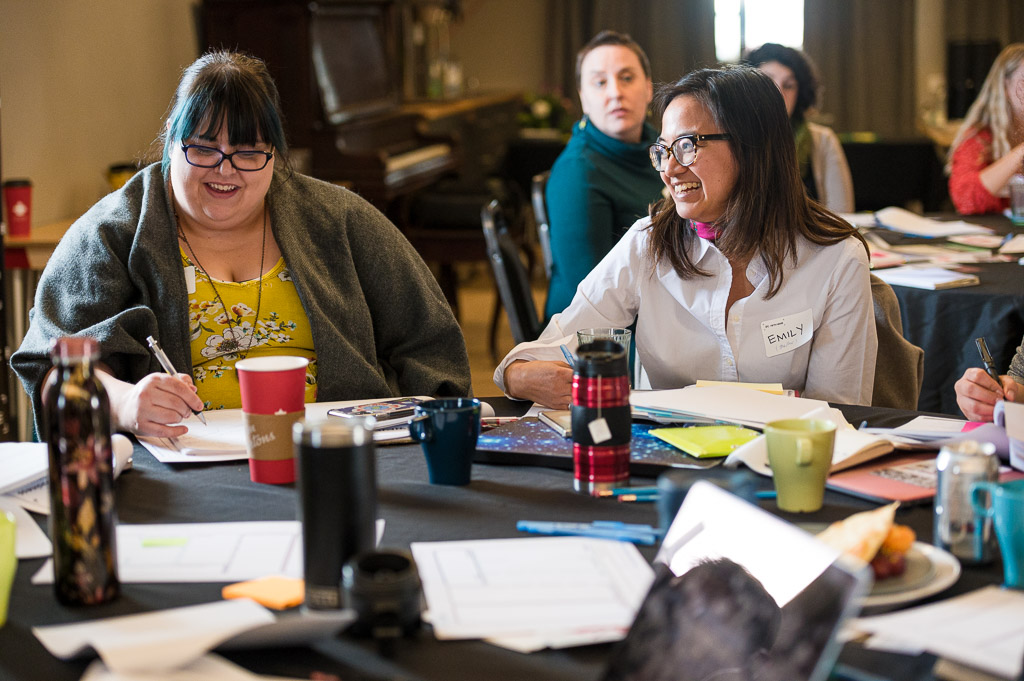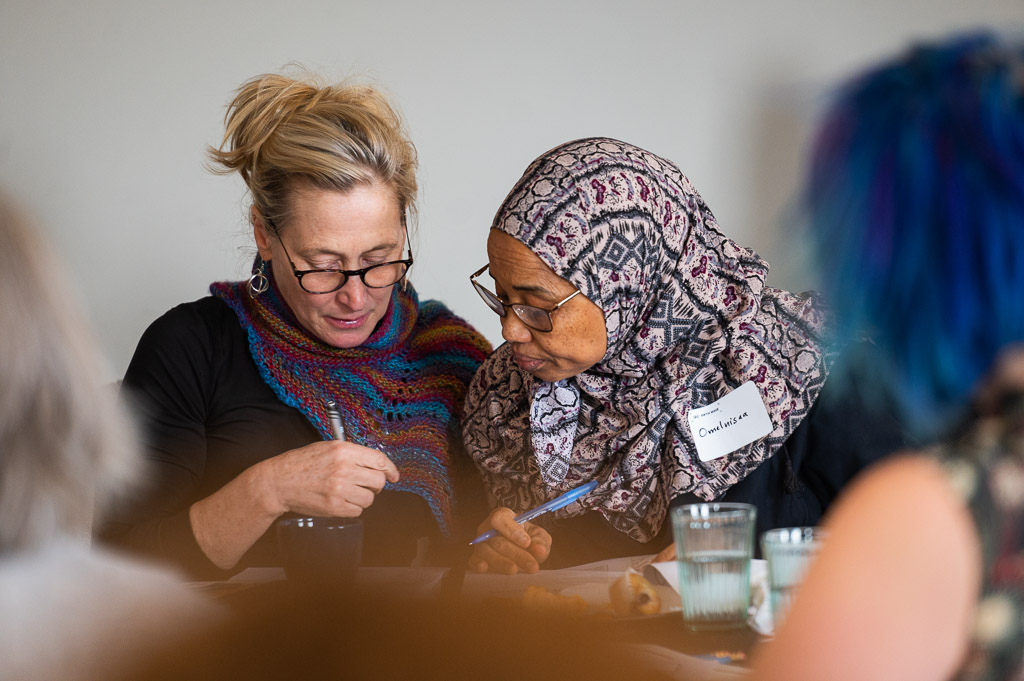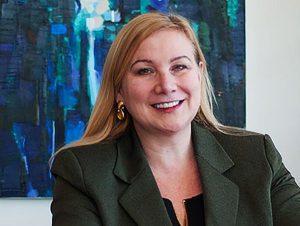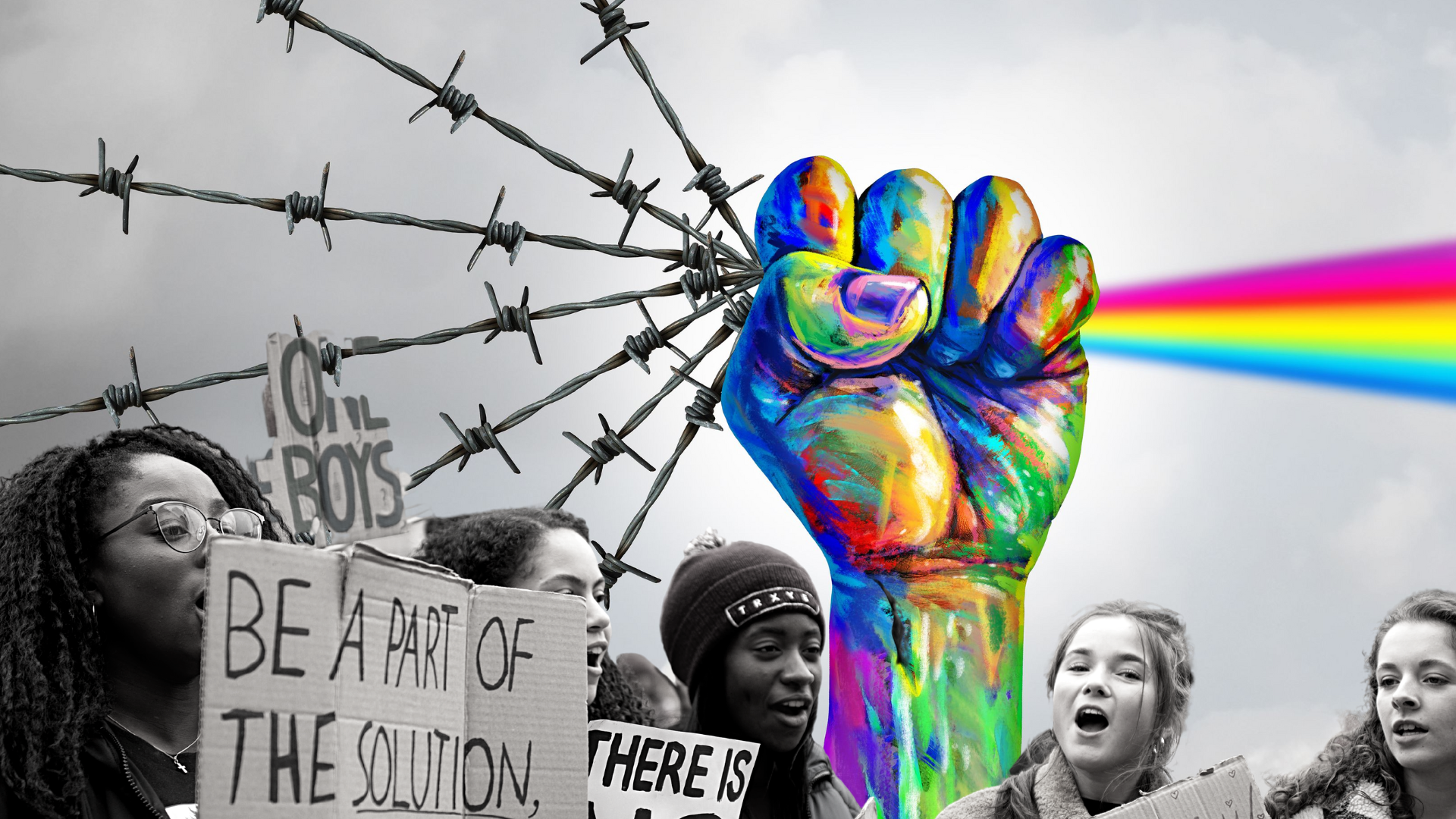
On November 3, 2022, the Equal Futures Network in partnership with the Canadian Women’s Chamber of Commerce (CanWCC), hosted an interactive incubator discussion examining the key challenges facing women, gender-diverse, Indigenous and racialized communities when it comes to advancing economic justice. This was the first Equal Futures Network incubator session dedicated to examining the intersection of economic equity and gender equality in Canada. A total of 35 participants attended the session and engaged in the Q&A session. Participants heard insights from the CanWCC, Moms at Work, Canadian Women of Colour Leadership Network, the National Aboriginal Capital Corporations Association (NACCA) and the National Collective of Women in Business (NCWIB) who shared their perspectives and insights about the issues, challenges and obstacles that create barriers towards achieving economic justice from their lived and professional experiences.
Following this in-depth discussion, participants were encouraged to share their thoughts and experiences. This open dialogue was also an opportunity for participants to develop ideas into partnerships. Advancing economic equity will require a substantive shift from the status quo by addressing systemic and structural challenges with women, two-spirit, gender-diverse, LGBTQ+ and IBPOC communities leading the way and in solidarity with each other.
Here is what we heard:
Why Economic Equity Matters
Around the world, women, in all of their diversity, perform the most underappreciated work, earn less than cis-gender men and do more unpaid and care work. As a result, they are bearing the brunt of the widening wealth gap. The COVID-19 pandemic has created an unprecedented economic crisis which has hit the poorest, most vulnerable and marginalized communities the hardest.
Economic equity matters because women, racialized (Indigenous, Black and people of colour (IBPOC)) and 2SLGBTQ+ communities are the most at risk to experiencing the effects of a global recession and these communities are already at a place of disadvantage due to existing systemic barriers to equitable participation in the global economy. At a systemic level, social, political and institutional norms have created structures that support unequal policies, legislation and economic tactics that at best are exclusionary, and at their worst, purposefully perpetuating harm and create barriers for equity deserving and marginalized groups.
Barriers to Achieving Economic Equity
Youth voices are missing from economic decision-making spaces
Youth are almost entirely left out of the conversation around economic equity. As a result, youth do not see a role for them reflected in the in the work being undertaken to advance economic equity. This work can be inaccessible for youth as it is discussed in technical language that is disconnected from individual lived experiences which further isolates and disengages youth from the process. In order to engage youth, they need to be talked to in accessible and relatable language that is grounded in shared experiences. This will build youth capacity to express their needs and shift the power dynamics so that their voices are heard and involved in decision-making. To see substantive change, we need to create an empowered generation of youth who are aware and understand how economic inequities impact individuals and their communities.
Individual Economic Empowerment
In the push for advancing economic equity, the role of the individual is too often left out of the conversation as the focus is placed on the systemic level. We need to shift focus to the economic education and empowerment of individuals. Current systems underestimate the decision-making power that is held in the hands of the average person – for context in 2021, small businesses made up 98.1% of all employer business in Canada – this is where change is going to come from. Widespread access to economic education and advocacy is the path towards equitable solutions that shift the narrative, change minds and equalize the balance of power.
Gatekeeping and industry siloes in the economic ecosystem continue to not only hold back individuals, but also our collective advancements for economic equity. For example, in advocacy spaces economic discussions are inaccessible. Economic equity is talked about in overly technical language, this creates an exclusionary environment that gatekeeps people with different lived experiences and backgrounds from accessing these spaces.
Indigenous, Black and Racialized Erasure
Indigenous, Black and other marginalized communities experience significant erasure, silence and barriers within the economic ecosystem. For example, there is a hundred billion dollar Indigenous economy that is being underserved by mainstream financial institutions because they are considered too high risk for investment. These economic policies further reflect ongoing colonial legacies in Canada and demonstrate the multitude of systemic barriers that IBPOC communities face when it comes to advancing their own economic capabilities.
Supporting economic development within Indigenous communities across Canada is a core part of NACCA’s mandate. Over the course of the pandemic. NACCA was able to provide over 1000 business loans of over 100 million dollars in total value and created 3800 full time jobs. This investment in Indigenous communities not only contributes to Canada’s overall GDP but creates a deep and meaningful social impact that drives community wellbeing and closes the dignity gap that many Indigenous and underserved groups face across Canada.
Steps for advancing economic equity in Canada (and around the world)
Collaboration and Partnerships
Equity work must be done across the board and apply an intersectional lens by focusing on empowering individuals, building partnerships and inclusive spaces. When applying an intersectional lens, we must ask ourselves how to incorporate reconciliation and decolonization into our work. Progress is prevented by division, which is very prevalent in the not-for-profit sector as the system is set up to be inherently adversarial, especially when it comes to acquiring limited funding and resources. For example, a lack of sustainable and long term funding, strict eligibility criteria within the grant model (i.e. needing charitable status to have access to certain grants) and competition for minimal funding dollars pits organizations against one another and breeds a system of insecurity.
Additionally, the constraints of grants around certain advocacy pieces means that you may not have the ability or freedom to speak/be an advocate for change as your financial security is bound within the constraints laid out in your funding agreement. All of this hinders progress and creates a system of competition that at the end of the day takes away from the work of the movement. We need to work as a collective to figure out ways to operate outside of these systems, to decolonize the spaces where we operate and create partnerships that are supportive and allow for collaboration as we will only see progress through collaboration and coordination. Coming together as an economic equity movement to build understanding and consensus on the issues that are impacting our communities will facilitate change at the individual, organizational and systemic levels and empower grassroots communities and movements.
Pay equity
Pay equity is a powerful symbol of economic equity and a tangible step forward to rally around. Unfortunately, there is still a lot of work that needs to be done to close the wage gap. Women’s labour continues to be undervalued. Additionally, globally, legislation and policies are still being created that are directly biased towards men and create situations where women, on average, are always going to be poorer than men. The wage gap is even larger when you consider intersecting identities like race, ability and sexuality and they are at a heightened risk of experiencing the negative effects of a global recession. Achieving pay equity would be a major step forward towards overall economic equity.
Post-pandemic recovery and progress
COVID-19 further exacerbated the economic challenges faced by women, racialized and gender-diverse people in Canada. Over the last two years, there has been a lot of discussion about what is needed in Canada’s post-pandemic recovery. Inequities were brought to the forefront of these discussions and showed us just how much work still needs to be done in order to achieve gender equality in Canada and around the world. Now is the time to think outside of the box and find innovative solutions while amplifying the voices of equity-deserving groups. There is a willingness from decision-makers for community engagement and community driven solutions to economic inequities Through partnerships and collaboration, we can create collective understanding and consensus by bringing people with different perspectives and lived experiences together to address key issues and advance them at all levels.
Publishers Note: We are grateful for CanWaCH permission to republish this article which originally appeared on their blog for LiisBeth readers. If you are unfamiliar with their Equal Futures Network initiative (now 500+ strong), you can learn more here. To learn more about CanWCC’s coalition-building mega project, click here and sign up to receive updates.
Related Reading

$5.5 Billion Investment Required To Prevent Collapse of Emerging Women’s Entrepreneurship Sector
“We weren’t offered a seat at the
table, so we created our own.” — Nancy Wilson, Executive Director, CanWCC

The Feminist Recovery Strategy
A new study shows how feminist business practices can help companies recover from the pandemic – and thrive in the future

The Creative Power of Sex and Gender-Based Innovation
Experts say integrating sex and gender analysis can lead to exciting new business models, enhance global sustainability, and promote human well-being. So why do top startup ecosystems turn a blind eye?




